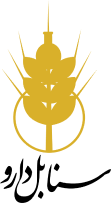داروهای گیاهی موثر بر سندرم تخمدان پلی کیستیک از دیدگاه طب ایرانی
Najmeh Dehparvar, Fatemeh Alijaniha, Seyyed Ali Mozaffarpur, Amir Niasari-Naslaji, Zahra Bahaedin, Ahia Garshasbi, Mohammad Gholami-Fesharaki, Mohsen Naseri
چکیده:
پیش زمینه: بر اساس روش دارویی معکوس، طب سنتی منبع اطلاعاتی خوبی برای کشف داروهای کاندیدای جدید دارد. سندرم تخمدان پلی کیستیک (PCOS) شایع ترین علت اختلال غدد درون ریز و ناباروری در بین زنان در سنین باروری است. این سندرم معمولاً با قرص های ضد بارداری خوراکی درمان می شود. با این حال، می تواند با عوارض جانبی همراه باشد.
هدف: هدف از این مطالعه شناسایی و اولویت بندی گیاهان دارویی پیشنهادی طب ایرانی (PM) برای درمان سندرم تخمدان پلی کیستیک (PCOS) بود.
مواد و روش ها: اولین گام یافتن مرتبط ترین کلمات کلیدی با علائم سندرم تخمدان پلی کیستیک در بین پنج نسخه خطی معتبر طب ایرانی (PM) بود، زیرا هیچ اصطلاح پزشکی به نام سندرم تخمدان پلی کیستیک (PCOS) در متون طب ایرانی (PM) وجود نداشت. با توجه به آن کلیدواژهها، تمام موادی که در کتابهای منتخب شرح داده شده بودند، ثبت شدند. هر ماده مدیکا بر اساس معیارهای خاصی امتیاز دریافت کرد. از نمرات برای اولویت بندی داروها استفاده شد.
نتایج: آنغوزه(.Ferula assa-foetida L) – بابونه گاوی (.Tanacetum parthenium L) – دیوخار (Lycium barbarum) – گورگیاه (.Cymbopogon schoenanthus L) – شاهی (سبزی) (.Lepidium sativum L) – گندنای کوهی (Marrubium vulgare) شش ماده دارویی برتر شناسایی شده در این مطالعه بودند.
نتیجه گیری: شناسایی اصطلاحات مرتبط نزدیک برای سندرم تخمدان پلی کیستیک(PCOS) در متون پزشکی سنتی و اولویتبندی داروهای گیاهی میتواند رویکرد مناسبی برای کشف داروهای جدید باشد. بر این اساس آنغوزه(Ferula assa-foetida L). با بالاترین امتیاز بهترین کاندید برای درمان سندرم تخمدان پلی کیستیک (PCOS) درطب ایرانی PM در نظر گرفته شد.
Abstract
Background: According to the reverse pharmacological method, traditional medicine has a good source of information for discovering new drug candidates.
Polycystic ovarian syndrome (PCOS) is the most common cause of endocrine disorder and infertility among women of reproductive age. This syndrome is commonly treated by oral contraceptive pills; however, it could be associated with side effects.
Objective: The purpose of this study was to identify and prioritize medicinal plants proposed by Persian medicine (PM) for the treatment of PCOS.
Methods: The first step was to find out the most relevant keywords to the symptoms of PCOS among five authentic PM manuscripts because there was no medical term called PCOS in PM texts. According to those keywords, all materia medicas that was described in the selected books were recorded. Each materia medica received scores based on specific criteria. The scores were used to prioritize medicaments. Results: Ferula assa-foetida L., Tanacetum parthenium L., Lycium barbarum, Cymbopogon schoenanthus L., Lepidium sativum L. and Marrubium vulgare were six top materia medica identified in this study.
Conclusion: Identification of closely related terminology for PCOS in traditional medical texts and prioritization of herbal remedies could be a sound approach to discover new drugs. Accordingly, Ferula assa-foetida L. with the highest score was considered the best candidate for the treatment of PCOS in PM.


